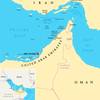Mind boggling” is the only phrase to describe recent events in the marine market. Last month the industry was front-page material for most major consumer press publications, which is rarely a positive sign.
At press time, salvage operations were underway aboard Castor to prevent the vessel from splitting open and spilling thousands of tons of gasoline into the western Mediterranean. The ship, which developed a 60-ft. crack in its deck during a voyage through rough weather in late December 2000, has become a lightning rod for the debate on safe haven for damaged ships carrying volatile cargo. Attempts to bring the ship into Spain, Gibraltar and Morocco were repeatedly thwarted.
In another incident, the 835-ton Jessica ran aground just off of Ecuador’s famed Galapagos islands — islands famed for housing some of the world’s rarest species and serving as inspiration for British naturalist Charles Darwin's theory of natural selection. While Mother Nature and quick action helped to mitigate the effects of the 160,000 gallon spill — and it appears that the environment will make a full and rather rapid recovery — the wreck will not soon be forgotten and will surely serve as fuel for activists’ fire. Jessica’s 58-year-old captain has claimed sole responsibility for the accident, claiming he misjudged his entrance into the aptly named “Shipwreck Bay.”
In times of crisis, the fact is lost that more than 99 percent of the world’s petrol products are moved safely, without incident. But it is these incidents, combined with other recent and historical accidents, that cumulatively help to shape the industry’s future. While it is impossible to gauge the exact impact on future vessel design, equipment, training and support functions, it is a sure bet that regulators on the international, national and regional fronts will seek new measures designed to financially penalize rule-breakers while ensuring “safer” shipping. Perhaps it is time for the marine industry to adopt the philosophy depicted above Celebrity’s Demetrios Kaparis on page 32: “Eternal Vigilance is the Price of Safety.”
Featured videos

Inside the Electrified Truckable Tug

Inmarsat Enhances Service to Drive Digitalization

Tracking Foreign Vessels Working in the U.S. Jones Act Market
Subscribe for
Maritime Reporter E-News
Maritime Reporter E-News is the maritime industry's largest circulation and most authoritative ENews Service, delivered to your Email five times per week









